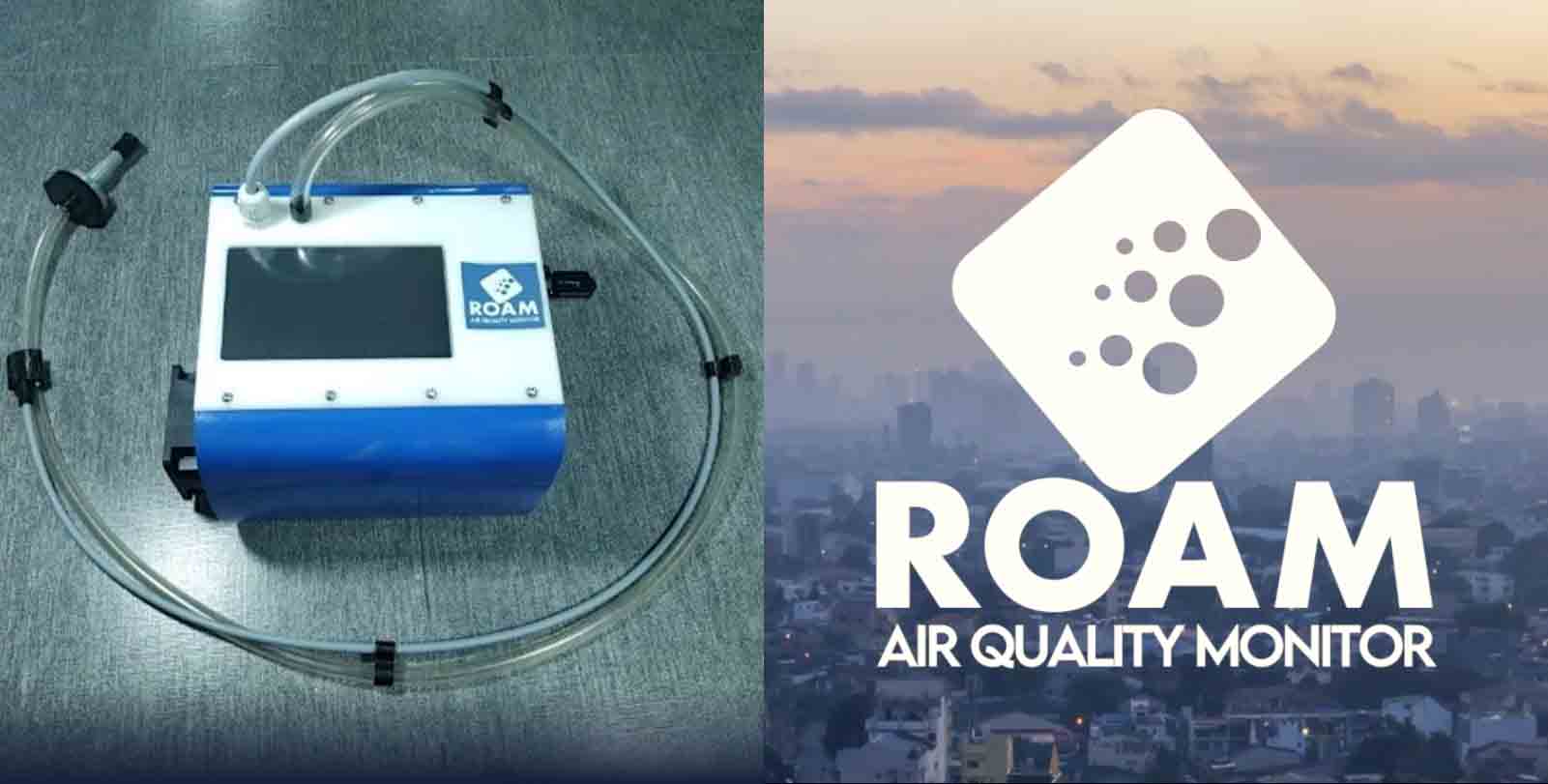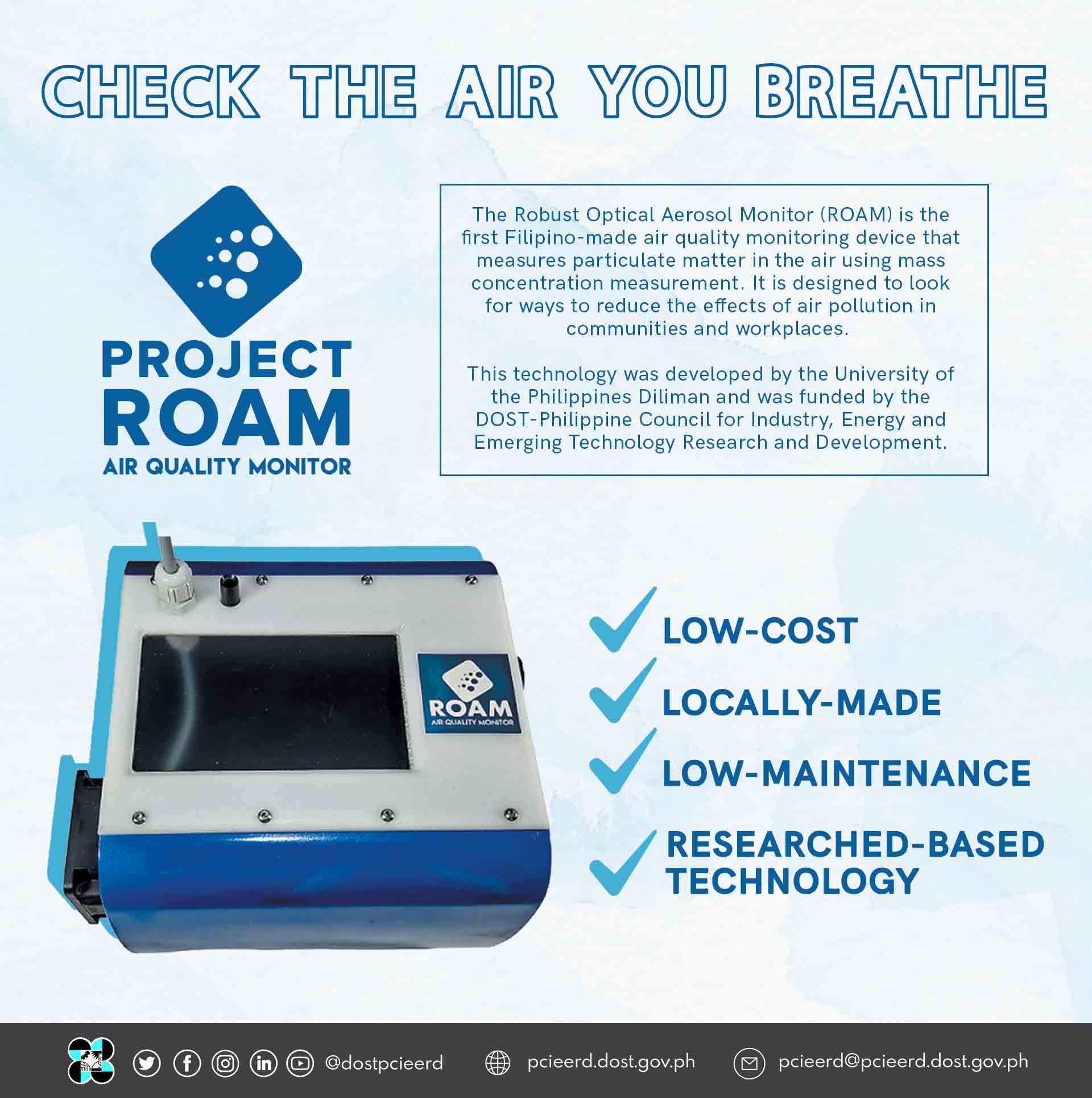
The Department of Science and Technology-Philippine Council for Industry Energy and Emerging Technology Research and Development (DOST-PCIEERD) urged government to consider the Philippine’s first locally made air quality monitoring device, Robust Optical Aerosol Monitor or ROAM as a prerequisite for the issuance of Environmental Compliance Certificate (ECC).
In its policy brief, DOST-PCIEERD pushed for a standard use of air quality monitoring devices (AQMDs), specifically ROAM, for industries that release high amounts of particulate matter into the air.
“Standardize the use of AQMDs, especially ROAM, in industries that primarily contribute to high concentration of particulate matter by adding it as a pre-requisite before obtaining an ECC from the DENR. In addition, the DENR may issue regulatory policies on the proper use, manufacture, fabrication, sale, importation, and exportation of aerosol monitors. Strategies to prevent counterfeit aerosol monitors from penetrating the Philippine market should also be strengthened,” the brief read.
DOST PCIEERD Executive Director Dr. Enrico Paringit said the use of technologies such as ROAM in shaping public policy innovates governance as it makes government operations more efficient and effective.
“We hope that government agencies will heed our call to have data-driven, research-based policies and we at DOST PCIEERD will help in carving out these standards and procedures,” he said.
ROAM is a technology developed by researchers from the University of the Philippines-Diliman and used to monitor air quality and concentration of particulate matter (PM) in the air. ROAM uses laser illumination and a camera to obtain images of size-selected particles up to PM2.5 to measure PM concentration in the air. In addition, the device is also capable of reading temperature and humidity with at least a five (5) minute interval.

“It is high time that relevant government agencies put focus and take actions on mitigating the environmental effects of our industries to the health of our citizens. We are certain that that ROAM would make a significant impact on the communities, especially those near high-risk areas,” Paringit said.,
Currently, the ROAM project of DOST-PCIEERD was able to locally fabricate 10 units of ROAM around the country. The device has also been employed and tested in a challenging environment in the municipalities of Agoncillo and Alfonso, Batangas for its commercialization, following the eruption of Taal Volcano, on June 12, 2021.
“As a leader and partner in enabling innovations in the Philippines, we enjoin our local government units to collaborate with our researchers in finding solutions in making our air cleaner through technologies brought about by research and development,” Dr. Paringit stated.
Compared to other foreign aerosol monitors, ROAM costs significantly less in terms of production and maintenance as it is developed locally. The cost discrepancy does not affect the quality and efficiency compared with other foreign aerosol monitors, as verified by DENR-EMB.
DOST-PCIEERD encourages LGUs to capacitate their local industries to produce necessary materials to produce ROAM, adopt legal mechanisms and incorporate the use of ROAM in coal mine industries, as well as promoting and commercializing the use of this air monitoring device. In addition, DENR-EMB may pursue developing local certification and evaluation of aerosol monitors to not be dependent on foreign certifications.
Check the policy brief here: bit.ly/roampolicybrief




